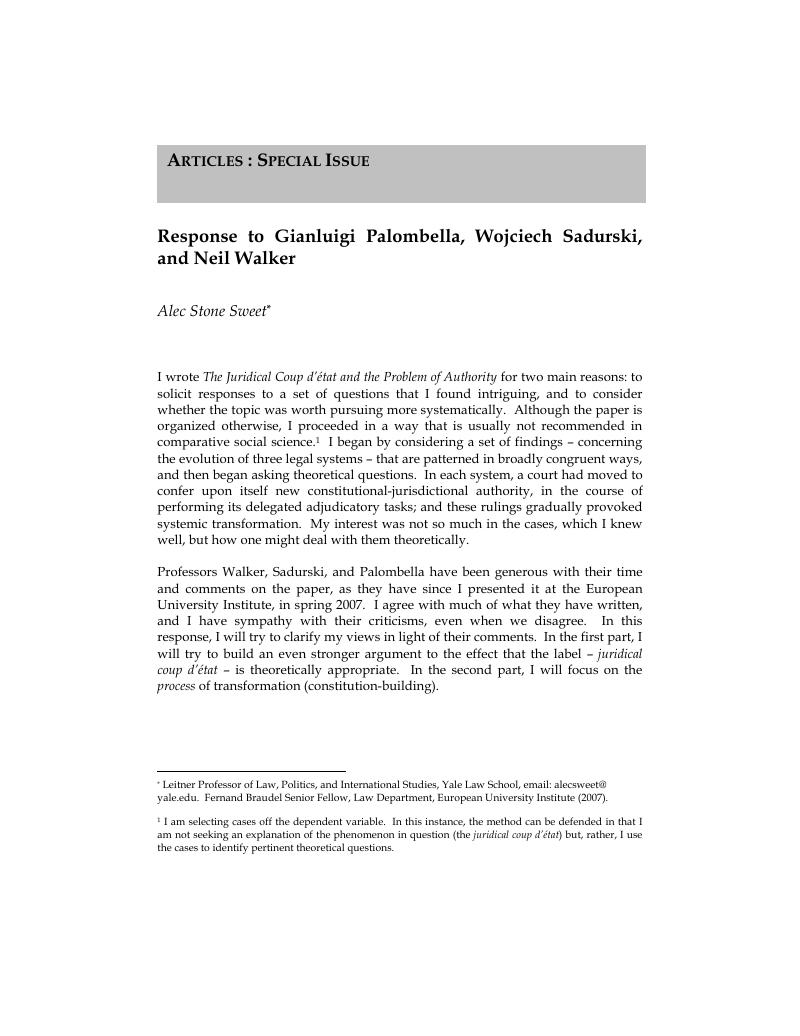Published online by Cambridge University Press: 06 March 2019

1 I am selecting cases off the dependent variable. In this instance, the method can be defended in that I am not seeking an explanation of the phenomenon in question (the juridical coup d'état) but, rather, I use the cases to identify pertinent theoretical questions.Google Scholar
2 Hans Kelsen, Introduction to the Problems of Legal Theory: a Translation of the First Edition of the Reine Rechtslehre or Pure Theory of Law 208-09 (Bonnie Litschewski Paulson and Stanley L. Paulson trans., 1992).Google Scholar
3 Walker cites Cruz (2006), which is a nice example of a doctrinal response to the juridical coup d'état, downstream. In the face of charges of usurpation, some legal scholars work to convince us that the Grundnorm always contained the norm produced by the coup, or could be derived from it. French and German scholars try to make the same sort of arguments with respect to their own systems, posttransformation. The new Grundnorm is being presupposed.Google Scholar
4 Palombella notes that Dworkin's theory of rights adjudication in the U.S. is based on a particular construction of the XIV amendment of the U.S. Constitution; I would say that Dworkin presupposes a preferred Grundnorm, one that shifts centrality to the courts, and away from constituent power. Alexy's theory of constitutional rights (cited in the original paper) is based on the structure of rights in the German Basic Law, also presupposes what I would ask to be explicated; See Robert Alexy, A Theory of Constitutional Rights (2002). In the domain governed by the Lüth decision, what was the content of the German Basic Law, pre-Lüth? Google Scholar
5 H.L.A. Hart, The Concept of Law 97-107 (1994).Google Scholar
6 Here is where counter-factual analysis, properly speaking, comes in. Take a moment and imagine the evolution of: (a) the German Legal Order without Luth and its progeny; (b) the French Fifth Republic without rights; and (c) the EC without the direct effect or supremacy of the Rome Treaty.Google Scholar